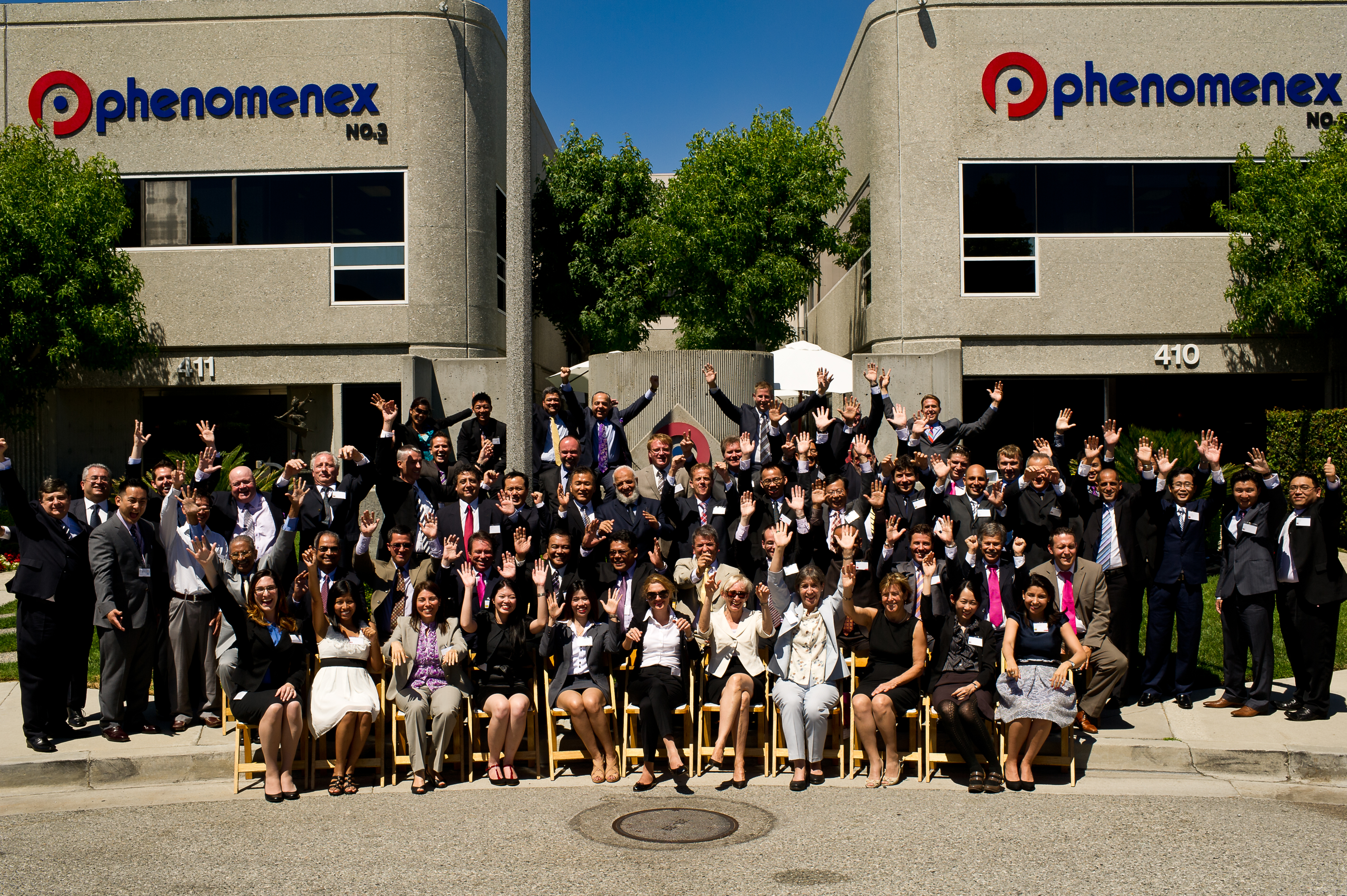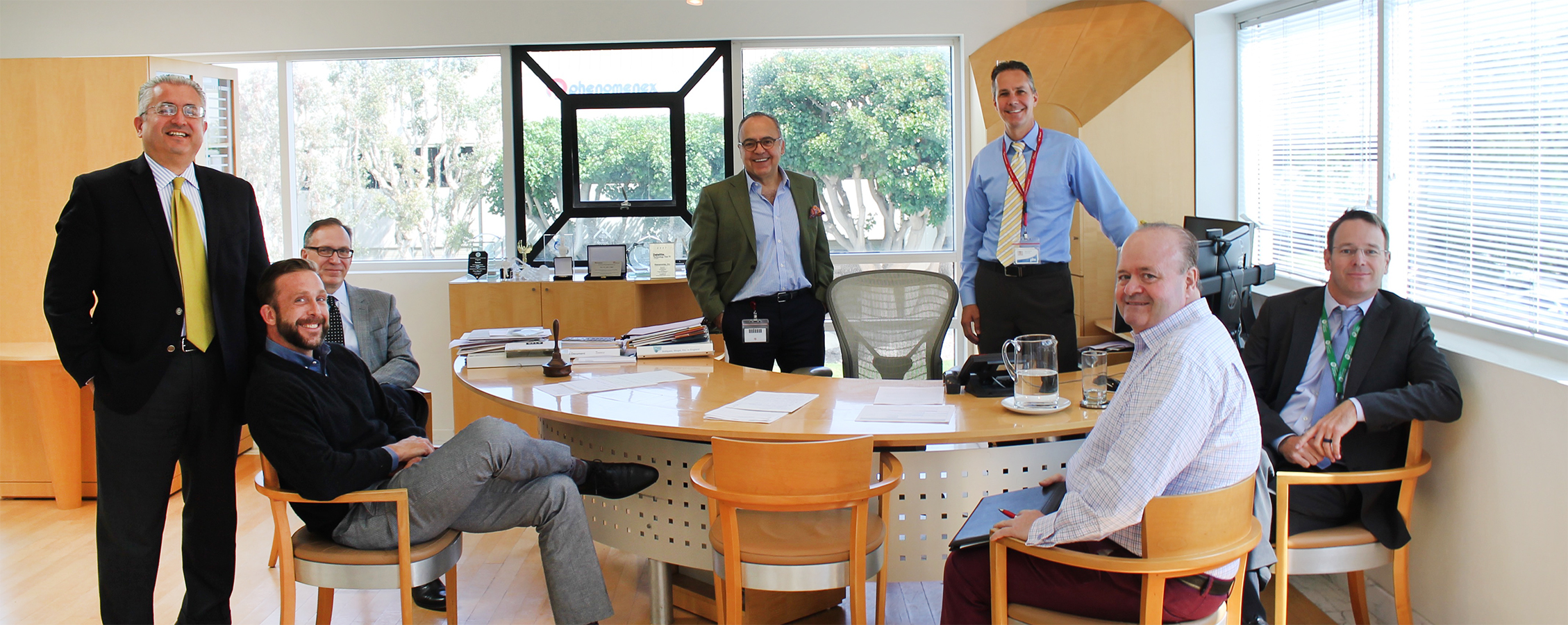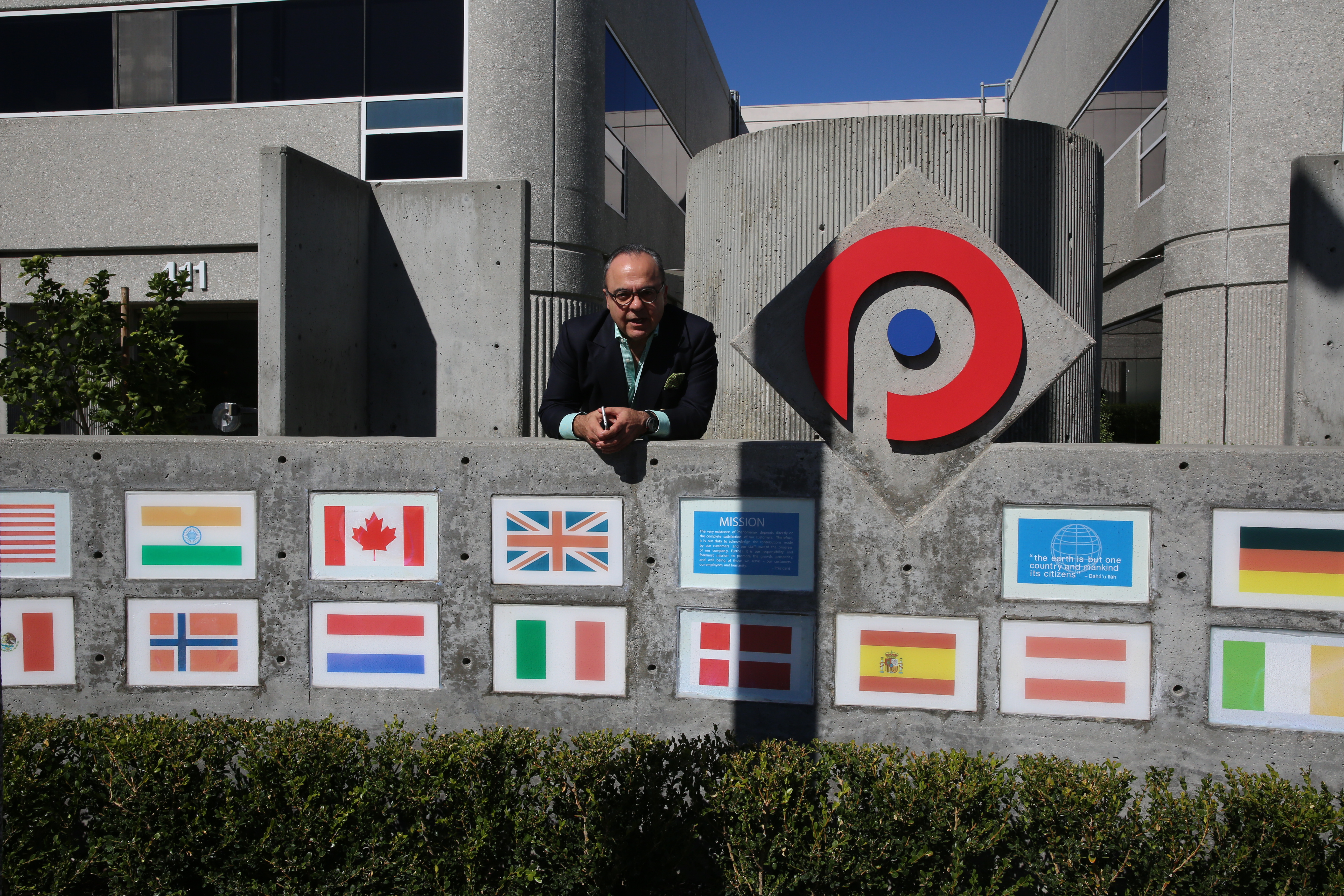 Fasha Mahjoor
Fasha Mahjoor
A renowned visionary
Architect-turned-disruptor, Fasha Mahjoor is a renowned visionary celebrated widely for his success in driving critical transformation across a number of life sciences verticals. Around here, he is better known as the architect of Phenomenex, and former colleagues hold his warmth, humor, and passion near and dear to their hearts.
As Phenomenex’s founder and former CEO, Fasha’s unique background laid the foundation for the company’s unlikely story and larger-than-life evolution.
An architect by education, Fasha once had ambitions to be the next Frank Lloyd Wright—and many will tell you he had the skillset and ambition to make a name for himself in the field. But, after seven years in architecture school, a successful thesis, and a great GPA, Fasha graduated from the University of Southern California into a challenging real estate market.
It was the early 80s. Rob, an old friend from England, visited Fasha in California and presented him with an entrepreneurial opportunity: “Fasha, America is the land of milk and honey, and you say architecture is going nowhere right now. What do you think about pursuing chromatography?”
Against all odds, Fasha decided to give it a go and started making sales for Rob in the U.S. He discovered a previously untapped skillset within himself and a timely opportunity to build a foundation for chromatography in the U.S.
During the initial few years as a distributor, Fasha and the small team devoured massive amount of industry knowledge, steadily grew the business, and saved every penny, with Fasha not even taking a salary for himself during the initial six years. At this point it was clear to Fasha that if Phenomenex was to have future, it must not rely on products from third parties. The company would need to develop its own products and novel technologies. With that goal in mind Fasha took the company independent. Armed with a laser focused attention, he plunged every penny and all focus into people, science, R&D and manufacturing, beginning a 40-year Phenomenex love affair with developing its own innovations, novel technologies and unique culture, with a constant eye and immense drive on becoming the market leader while also having a major impact on humanity.
“After six months, I realized this couldn’t be done half-heartedly,” said Fasha. “From then onwards, I plunged into it with everything I had. And, really, I can say that was my journey for the next 34 years with Phenomenex—seven days per week, 365 days per year—and every year the company progressed.”
Fasha recalls a foundational philosophy that contributed to Phenomenex’s success: “When they regress, we progress.” As a private company, Phenomenex retained the freedom to make bold decisions at critical times. When market competitors faced challenges that required conservative action to keep stock prices up, Phenomenex took progressive action. When competitors made layoffs, Phenomenex made hiring pushes.
This philosophy not only allowed the company to attract the best talent but also created space to double down on the novel science behind its products. Without having to answer to investors, Phenomenex distinguished itself as boldly independent and able to keep science and people at the forefront.
Dedicated to ensuring the right form and function of the company, like any good architect, Fasha was pivotal in creating a culture at Phenomenex that disrupts traditional corporate molds. This started first with his three-part leadership mission.
Dedicated to ensuring the right form and function of the company, like any good architect, Fasha was pivotal in creating a culture at Phenomenex that disrupts traditional corporate molds. This started first with his three-part leadership mission.
“I’ve been asked by peers over the years if they can borrow our mission which was “Breaking with Tradition”,” said Fasha, who finds it puzzling and laughable when companies change their leadership trajectory every few years. “Always, I’ll gladly share it, but only if they can commit to every word of it: Look after your customers. Look after your employees. Do some good for humanity. You are bound to be successful if you can apply those three rules—no matter the business.

“After six months,
I realized this couldn’t be done half-heartedly,” said Fasha. “From then onwards, I plunged into it with everything I had. And, really, I can say that was my journey for the next 34 years with Phenomenex—seven days per week, 365 days per year—and every year the company progressed.”

Fasha always kept an acute pulse on the happiness level of his employees. Every time Phenomenex issued an employee survey, he made it his priority to read every response. If something could be done to improve their experience, he made sure it happened.
“My inspiration at Phenomenex came from those around me—it inspired me to work for them,” said Fasha.
When asked about his favorite memories at Phenomenex, Fasha can share countless anecdotes tied together with a common thread of humanity and authentic fun. One memory, however, rises to the top. Ahead of an important interview with a prospective leadership candidate, Fasha’s employees ambushed him with water balloons in a corner of the office.
“It was nearly 120 employees coming at me from all angles—up the stairs, behind desks and doors—and I loved it,” said Fasha.
With only a few minutes to spare ahead of the interview, he wrapped himself in a few towels and went to meet the top-tier candidate.
“Still soaking wet, I entered the conference room and went to shake his hand,” said Fasha. “He couldn’t speak—I thought he was going to run out the door. But, deliberately, I went through the interview as if it was perfectly normal. Eventually, I told him what happened and said: ‘This is Phenomenex. This is the culture. It’s one for all and all for one. I love what just happened, and it will probably happen again. If you want to join Phenomenex, you better accept this sort of thing.”

“This is Phenomenex. This is the culture. It’s one for all and all for one. I love what just happened, and it will probably happen again. If you want to join Phenomenex, you better accept this sort of thing.”
Fasha built Phenomenex with philanthropy embedded in its DNA. Coming from several generations of serious philanthropists in his family, it was also embedded in him.
“I believe any individual or establishment that is progressive and profitable has a duty to provide a giving hand to those less fortunate,” said Fasha. “This always was a part of Phenomenex culture and, as we grew, it became more employee-owned and driven.”
To ensure that employees had a voice in Phenomenex’s charitable giving and hands-on volunteerism, Fasha created a philanthropic board within the organization. And, as a byproduct, employee morale and satisfaction skyrocketed. Fasha recalls it as a key determinant in making Phenomenex one of the best places to work.
Another lasting impact of Fasha’s legacy at Phenomenex is the way he champions out-of-the-box thinking and the strength of the next generation.
“I believe in the power of youth,” said Fasha. “Phenomenex is like a university; age doesn’t matter. Forty years ago, our industry was plagued with grey hair and pinstriped suits. To be successful, you were told to hire big shots with decades of experience. That didn’t click for us. We threw preconceived notions and ways of thinking out the door and radically embraced “breaking with tradition”. No prejudice of any kind, the more colorful a company and greater diversity the better culture we create. Mistakes are accepted—welcomed, even—because they create better learning.”
As Fasha reflects on Phenomenex’s 40th-anniversary milestone, he shares:

“When I parted with architecture—which I love—it was difficult for me. However, when I look back, I’m so gratified that I got lost in this world of science—not because the business became successful but because the products, we developed helped people, their health, plants, animals, diseases, and much much more. We’ve enabled scientists to develop medicine and more that makes a real, life-changing impact. I could’ve built buildings, but everyone builds buildings. But, only a few developed technologies to help the wellbeing of all living creatures,” Fasha smiles.
Throughout Fasha’s adult life, he has supported many charitable causes in several countries around the world. Fasha is also a Trustee of The Outward-Bound Trust (OBT) UK. OBT is an eighty-year-old charity that helps young people to defy limitations through learning and adventures in the wild.
In 2022 Fasha was the winner of the most prestigious Science History Institute & Pittcon Heritage Award. Fasha will be the first non-scientist who has won this award. The award also sees his addition to the Pittcon Hall of Fame, joining other pioneers as Bill Hewlett and David Packard, Arnold Beckman, Perkin and Elmer, Varian brothers, James Waters, and Sigurd Varian among others.
Fasha’s alma mater, the Manchester Metropolitan University, in July 2022 appointed him an honorary doctorate in recognition of his major contribution to the analytical sciences and his support for a wide range of charitable causes.
In 2021 Fasha was appointed as an Honorary Parton of Royal Grammar School (a 720-year-old school), Worcester, UK where Fasha did his schooling. An honor that Fasha does not take lightly.
In 2013 Fasha was awarded the Ellis Island Medal of Honor (setting his name in the Library of Congress, alongside those of US Presidents and Nobel Prize winners), for his philanthropic endeavours.
Phenomenex congratulates Fasha on these well-deserved honors and extends sincere gratitude for his monumental contributions to our community over the past 40 years.




